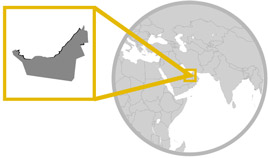Kuwait is a country located in the Middle East, on the northeastern edge of the Arabian Peninsula. Here is some information about Kuwait's geography, history, and culture:
Geography:
Location: Kuwait is situated in Western Asia, bordered by Iraq to the north and west, Saudi Arabia to the south, and the Persian Gulf to the east.
Capital: Kuwait City
Area: Kuwait covers an area of approximately 17,818 square kilometers, making it one of the smaller countries in the region.
History:
Early History: Kuwait has a rich history dating back to ancient times. It was an important trading center for merchants traveling along the Silk Road and the spice route.
Ottoman Rule: In the 18th century, Kuwait came under Ottoman rule. However, the ruling Al Sabah family maintained a degree of autonomy.
British Protectorate: In the late 19th century, Kuwait became a British protectorate, which lasted until Kuwait gained independence in 1961.
Independence: On June 19, 1961, Kuwait gained full independence from Britain. This date is now celebrated as Kuwait's National Day.
Gulf War: Kuwait faced a significant challenge in 1990 when it was invaded and occupied by Iraq under Saddam Hussein. This led to the Gulf War, during which a coalition of nations, led by the United States, liberated Kuwait in 1991.
Modern Kuwait: Since gaining independence, Kuwait has developed into a prosperous nation with a strong economy based on oil production and exports. It is known for its modern infrastructure, education system, and healthcare facilities.
Government: Kuwait is a constitutional monarchy with a parliamentary system. The Emir of Kuwait is the head of state, while the country's political system includes an elected National Assembly (parliament).
Culture:
Language: Arabic is the official language of Kuwait, and English is widely spoken, especially in business and government.
Religion: Islam is the predominant religion in Kuwait, and the majority of the population is Muslim.
Cuisine: Kuwaiti cuisine is influenced by Arabic, Persian, and Indian flavors. Popular dishes include biryani, machboos (a spiced rice dish), and various types of grilled meats.
Traditions: Kuwaiti culture places a strong emphasis on hospitality, and traditional values are important. Traditional clothing, such as the dishdasha for men and the abaya for women, is commonly worn.
Economy: Kuwait's economy is heavily dependent on oil production and exports. It has one of the highest per capita incomes in the world, largely due to its substantial oil reserves.
Kuwait has made significant progress in various fields since gaining independence, and it plays a role in regional politics and diplomacy. Its history, culture, and strategic location in the Middle East have made it an important nation in the region.

